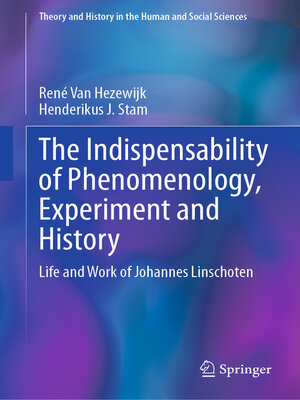The Indispensability of Phenomenology, Experiment and History
ebook ∣ Life and Work of Johannes Linschoten · Theory and History in the Human and Social Sciences
By René Van Hezewijk

Sign up to save your library
With an OverDrive account, you can save your favorite libraries for at-a-glance information about availability. Find out more about OverDrive accounts.
Find this title in Libby, the library reading app by OverDrive.



Search for a digital library with this title
Title found at these libraries:
| Library Name | Distance |
|---|---|
| Loading... |
This book is the first comprehensive intellectual biography of Johannes Linschoten, whose work has been credited with helping to bring down the Utrecht School of phenomenological psychology. The authors show this to be a mistaken assumption in the light of Linschoten's entire oeuvre and demonstrate his importance for an understanding of a phenomenological psychology that necessarily coexists with an experimental, scientific psychology. In the Netherlands, Linschoten is particularly appreciated for his last book, published posthumously. That volume, Idols of the Psychologist, took a critical look at phenomenological psychology and its pretensions while simultaneously acknowledging that a phenomenological outlook is a necessity for beginning any kind of experimental investigation. Most commentators on this book considered Linschoten a convert from phenomenology to experimental psychology, but have either ignored his earlier, substantive work or have not seen the importance of the intellectual context for his final work.
By examining his life and the full extent of his voluminous writings, this book demonstrates Linschoten's importance for the development of psychology in the Netherlands and beyond. It will shed new light on the life and work of Johannes Linschoten as well as the Dutch school of phenomenology and its postwar contributions to psychology in Europe and North America. Furthermore, for the first time, this book brings together important aspects of Linschoten's life with his prodigious output. It demonstrates how his life and work created a unique psychology that deserves to be continued and developed.







